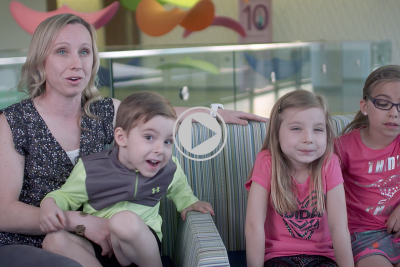Recently, due to unfortunate events this past spring and summer, I found myself having multiple conversations about death with my almost 5-year-old daughter. I hadn’t planned for the conversation, I wasn’t prepared for it, and it’s not a conversation I really wanted to have. But, like death itself, you don’t always get a warning, and you don’t get a choice in the matter. It just happens, and you have to react. There are not necessarily right or wrong ways to handle this subject. And grief hits people very differently. So with that in mind, my talking points below are not meant as steadfast rules, but rather food for thought if you find yourself in a similar situation with your children.
Make it okay for your child to talk about death and their feelings about it.
Be open to having conversations about death with your children. This includes listening to and addressing their questions when they approach you, as well as initiating the conversation if your children have experienced the loss of someone close to them. Directly ask them how they are feeling, but respect the fact that they may not want to talk about it. Most importantly, let your children know that you are there to listen and to help whenever they may need you.
Keep in mind your child’s current developmental level when discussing death.
Children in early childhood don’t yet understand the finality of death and commonly view it as temporary, as if we are saying goodbye to a relative who we will see at the next holiday. They may have magical thinking and associate something they did with the death of a loved one, which seems completely illogical to us but makes sense to them. What may seem like a very silly question (Can’t we face-time great grandpa in heaven?), is a perfectly reasonable question for a young child to ask. “No sweetheart. As far as I know, face-time doesn’t work in heaven. But I like that idea.”
Appreciate that grief responses in children may vary significantly.
At different points, your child may become tearful, angry, fearful, or confused or show a change in sleep or eating habits. After a death, it is also normal for them to exhibit death-related themes in play or become focused on death in movies.
Repetitive questioning is to be expected but can be overwhelming.
Death may be a completely new concept to your child, and with new situations often comes questioning. This may be even more pronounced if your child is in the “why” stage and is particularly inquisitive about things. Why did he die? What happens when you die? Where do you go? How can he breathe in that box? Simba could talk to his father after he died and went to heaven, so why can’t I talk to great grandpa?
Listening and providing reassurance is most important.
After a little distress over how to answer questions the “right” way, I realized that the answers I provided weren’t as important as taking the time to have the conversation and address my daughter’s curiosity, concerns and fears. I felt I needed to be honest with some questions, “Yes, your daddy will die someday. We all will die someday.” But what mattered the most was that I provided reassurance, “You don’t need to worry about Daddy or me dying right now. We are here for you, and you will be cared for no matter what.”
Model healthy emotional expression.
Don’t be afraid to show grief and cry in front of your children. In fact, this lets them know that grief reactions are normal and okay. If you are able, share with your children how you are feeling.
Remember that self-care is important.
In order to take good care of your children, you need to take care of yourself. Don’t be afraid to allow yourself personal time and space to grieve. Ask your partner, another family member, friend or babysitter to watch the kids while you have some time to yourself.
Teach your children different ways to work-through their grief and to remember their loved ones.
Remind your children that you are available at any time to talk. Encourage them to draw pictures or write letters to their loved ones. Older children may benefit from writing in a journal. Talk about your loved ones and happy memories that you shared. Frame pictures or keep photobooks around the home.
Talk about your family’s religious and spiritual beliefs related to death.
For some families, religion plays a large role and can be a great source of comfort in times of grief. If religion and spirituality is important to your family, incorporate these beliefs and values in conversations about death with your children.






Comments